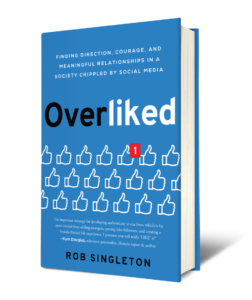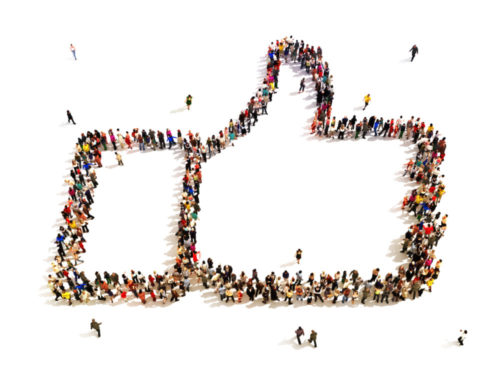Picture this: I’m racing full speed, trees blurring past on both sides, wind cutting across my face. I schuss down the hill to the bottom, where I set an edge and swerve to a stop in a spray of snow. I am pretty sure this was my most epic run—at least in the last 10 years. The stop wasn’t all bad either. I pull off my goggles and catch my breath, furtively glancing to see if anyone saw what I just did, instinctively looking for phones in people’s hands. I also throw together a few quick thoughts in my head for the obligatory and ever so humble “Who me?” speech sure to be requested.
Standing there, catching my breath, I’m thinking, Man! Did I just do that? This had to be my best run in years. Then, after I look around, I’m thinking, “Are you kidding me? No cameras?” Then I spot him, one teenager clapping his hands, stopping to motion to me, then clapping his hands again. I pull off my earbuds to hear what he wants. He says, “Dude, you were shredding!” And I say what we would all say in that situation, “Did you video it?” Nope.
Elation turns to disappointment, and I head over to the lodge. Inwardly, I’m trusting that one of my friends or family saw me on the run. But no one did. Not even a shaky GoPro validating my awesomeness. I’m alone in my awesomeness. My family had to take my word for it, and now you do too. Please believe me. I went fast.
Two days later, I’m on a much smaller run with slushy snow. I turn to look at my son and, my ski stops. One minute I am upwardly mobile, the next I am upwardly gazing. I’m moaning in pain as I grab my leg. What just happened? I look around for help and also to see if anyone saw me. Did anybody video that? The thought is a little ego-shattering. I see someone with a phone in his hand—he’s calling the ski patrol. Ski patrol! In no time flat, I’m being carried down the hill. On a stretcher! You know what I’m thinking: If anyone catches this, it’s never getting posted. I refuse to be reduced to a meme! Or worse, a gif!
These days, cameras are pointed at all of us everywhere—from grocery stores to signal lights to strangers in crowds. I’m a professional guy who is secure in my identity, with a family and a big enough circle of friends to feel loved even when I do something dumb. So if being “liked” or “videoed” or “shared” can still inflate or deflate me, what does it do to the people who have all their digital “friends”—and enemies—watching and commenting about them on social media all the time? Are we really more concerned with how we perform virtually than in real life? For many of us, the unfortunate answer is yes.
Social media blunders can be devastating. That ski fall tore my ACL, but at least my image, my identity, and my self-respect stayed intact. What do you do if they don’t? What if your mood rises and falls according to those images and interactions that appear after the fact? There should be a vaccine against the deflation of our own attitudes, a cure for negative reactions when online “relationships” turn ugly.
I Enjoy Feeling Lonely, Disconnected, and Unloved Said No One Ever
In a world divided by economics, political views, and gender roles, there are a few foundational truths that we can all agree on. Love is life-giving. And authentic relationships matter greatly. Almost everyone would agree to that.
The problem is, in this age of instant, global connection, we are somehow becoming more and more disconnected. It is becoming increasingly difficult for people to be themselves and reveal what’s really going on in their lives. To a large degree, this is because the lines are being blurred between real and authentic and what’s politically correct and pre-approved to say out loud or even online. Our ability to engage with those around us seems to be faltering. It is becoming easy to confuse the notion of being “connected” with being in actual relationship.

As a global village, we are certainly more networked. Well over 60 percent of the world’s population has cell phones. But we are also more isolated. Oddly, the generation that was all but born with a device in their hand is feeling this isolation more than previous ones. While 90 percent of millennials engage regularly in social media, 22 percent say they have no friends at all. Read that again. Not “few real friends” but “no friends at all.” Well, I guess there’s a silver lining —at least they can still tell the difference. However, that’s hardly comforting in light of the fact that we are creatures of community who lack any kind of real community.
God and Community
Orthodox Christianity teaches the biblical truth that God is one with three distinct personalities—the Father, Son, and Holy Spirit. It’s called the Trinity. In the first book of the Bible, Genesis, we also learn that humankind was God’s crowning achievement. He said in Genesis 1:31 that it was “very good.” Not just “good” but “very good.” Back up a few verses and we see why. In Genesis 1:27 it says, “So God created mankind in his own image…” And what is one of the main things about the image of God? That He is one God in three persons. In other words, community.
At no other time in history have we had such rapid access to each other. With a phone call, a text, or a video chat, the people we love and care about are virtually at our fingertips. In the coronavirus crisis that stopped the world, people were able to stay in regular communication with each other. We turn to our ever-present handheld devices to connect with those around us. The technology that links us together is amazing.
However, the issue of disconnection isn’t the technology, but our use of it and how our brains filter what’s being taken in. Our perception of reality becomes skewed as we scroll through our Instagram feed or view the latest posts on Facebook.
Our online connectivity has changed our relational behaviors. We friend and unfriend with the tap of a screen. We decide if life is good based on if we are liked on Facebook or followed on Instagram. Unfortunately, the importance of whether our latest post is “liked” can outweigh the importance of us being liked ourselves.
That vital connection we long for is too often displaced by the need for validation, a thumbs-up, smiley face, wink face, thank-you hands, heart emoji, fire emoji, take your pick—I got more! That real life-giving love we are actually longing for is constantly being replaced in favor of accumulating likes. Our desire to be liked is so oversaturated we’ve reached a point of being “over-liked.”
Are We Addicted to Likes?
Researchers at aerospace and defense manufacturer Northrop Grumman state that the lure of likes on social media literally rewires our brains. Each time one of our posts receives a like, it fires off a hit of dopamine. (Dopamine is a neurotransmitter in the brain, a chemical messenger, that helps us feel pleasure.) According to Northrop Grumman, getting a like online “triggers the same kind of chemical reaction that is caused by gambling and recreational drugs.”

On social media, people talk about themselves 80 percent of the time, but if you were talking in real life, it would be only 30 to 40 percent. When people reveal themselves and get a “like,” it perpetuates the social media habit. Enough said, we’re addicted to likes.
So what do we do about it? How do we break free from this addition to likes? It’s something that God has put on my heart because He’s concerned about it too. In fact, I’ve written a book on it called, Overliked: Finding Direction, Courage, and Meaningful Relationships in a Society Crippled by Social Media. It’s due to be released in April of this year, but I want to share some of what God’s downloaded to me. Next Monday, I’ll talk more about likes.
Until then, lean-in to Jesus. He loves you.
~Pastor Rob
Aka, P-Ro
